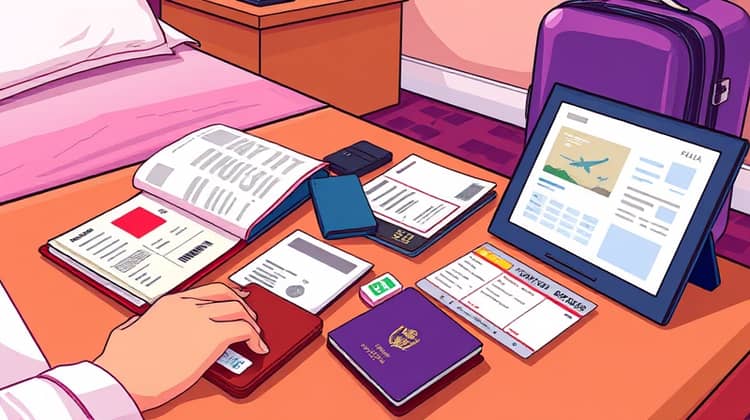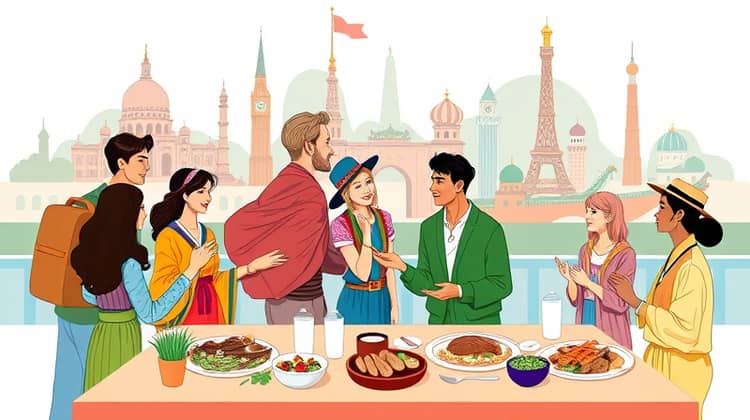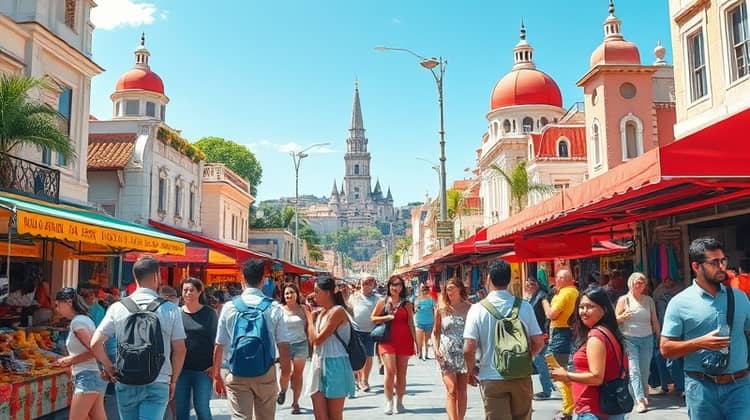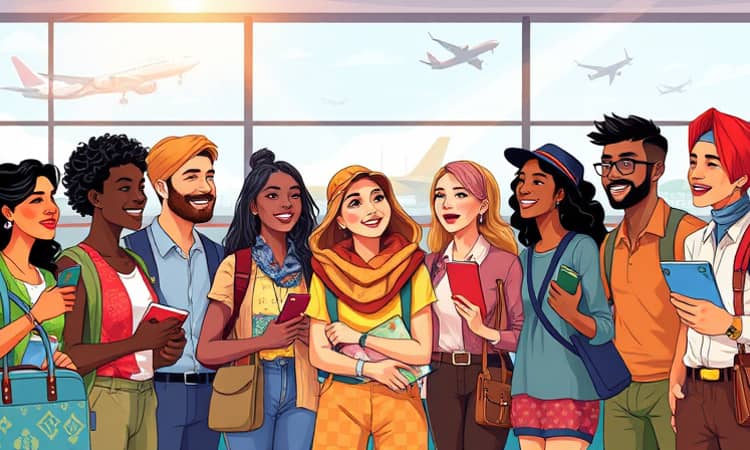Traveling abroad is an exhilarating experience filled with new sights, cultures, and adventures waiting to be discovered. However, to make the most of your journey and ensure a smooth experience, it’s crucial to adopt certain best practices that can help you navigate the complexities of travel. Below are the top seven best practices that every traveler should keep in mind before embarking on their international adventures.
Whether you are a seasoned traveler or planning your first trip abroad, these best practices will guide you in making informed decisions, staying safe, and fully enjoying your travel experience. Ready to explore? Let’s dive in!
1. Research Your Destination Thoroughly

Understanding the nuances of your travel destination is essential for a hassle-free experience. Dive deep into the culture, history, and attractions of the place you’re visiting. Not only does this knowledge enhance your travel experience, but it also equips you with the necessary information to avoid cultural faux pas or misunderstanding important local customs.
Take advantage of credible sources such as travel blogs, guidebooks, and forums to get insights from fellow travelers who have encountered various scenarios. Instead of just visiting the popular tourist sites, try to discover hidden gems and local favorites to make your trip more worthwhile.
- Learn about the local language and key phrases.
- Understand cultural norms and behaviors.
- Explore local cuisine and dining etiquette.
- Research safe areas and avoid high-risk zones.
- Read about local laws to ensure compliance.
During your research, it’s also vital to check travel advisories from government sources regarding safety updates or health alerts. This ensures you are well-informed about any potential issues that may affect your travel plans.
Lastly, consider the time of year you are traveling as different seasons can significantly impact your experience, such as weather conditions or local festivals.
2. Keep Important Documents Safe

One of the most critical aspects of traveling abroad is ensuring that your important documents are secure. This includes your passport, driver's license, tickets, and any necessary visas. Losing these documents can lead to a series of complications that could jeopardize your trip.
Always have physical and digital copies of these documents stored safely in inaccessible areas, such as in a hotel safe or a secure location in your luggage.
- Keep your passport and copies in separate locations.
- Use a travel wallet to keep documents organized.
- Consider using a secure mobile app to store scanned documents.
- Keep emergency contacts noted in your wallet.
This preparation empowers you to act quickly and efficiently should any issues arise. Always remember, a little precaution goes a long way in making your travel experience worry-free.
3. Stay Connected with Home

In this digital age, staying connected with family and friends while traveling abroad has never been easier. Whether it's letting them know you arrived safely or sharing exciting updates from your travels, keeping in contact can provide peace of mind.
Utilize modern technology effectively to ensure you maintain communication regardless of where you are in the world.
- Use messaging apps like WhatsApp for free communication.
- Check international phone plans for better rates.
- Consider getting a local sim card for better connectivity.
- Schedule regular check-ins with family back home.
Staying connected can also serve as a safety net, allowing loved ones to know your whereabouts, especially in unfamiliar locations.
4. Be Mindful of Local Customs and Etiquette

Every country has its unique customs and etiquette that reflect its culture. Familiarizing yourself with these practices can significantly enhance your interactions and experiences abroad. For instance, greeting customs may vary, and understanding these nuances can help you avoid giving offense unintentionally.
Additionally, being aware of local dress codes, dining etiquette, and tipping practices can greatly improve your travel experience. For example, some cultures may expect you to dress modestly in religious sites while others may have specific dining rules that are considered polite. In many regions, tipping is customary while in others, it might be considered rude. Observing local behaviors can help guide you in such situations.
5. Manage Your Finances Wisely

Financial management is a crucial aspect of traveling abroad. Beyond budgeting for planned expenses, it’s wise to account for unforeseen costs that may arise, such as emergencies or last-minute activities.
By having a plan in hand, you can enjoy your travels without the stress of overspending.
- Use a travel money card to avoid foreign transaction fees.
- Notify your bank about your travel plans.
- Keep some local currency on hand for small purchases.
- Track your spending through expense apps.
Being mindful of your finances not only makes your trip smoother but also prevents potential financial pitfalls that could detract from your overall experience.
6. Prioritize Safety and Health

Your safety and health should always be a priority while traveling. It's essential to stay informed about any health advisories related to your destination and to carry necessary medications. Traveling insurance can also be a great safety net in case of unexpected health issues.
Stay vigilant about your surroundings, be cautious in unfamiliar areas, and take preventive measures to avoid common health issues associated with travel, such as foodborne illnesses or injuries.
- Keep a first-aid kit handy for minor emergencies.
- Stay hydrated and pay attention to food safety.
- Know the location of nearest medical facilities.
- Have emergency contacts readily accessible.
Remember to trust your instincts and not take unnecessary risks, as self-awareness can significantly contribute to a safe travel experience.
7. Embrace Cultural Exchange and Learning

Traveling abroad provides an excellent opportunity to foster personal growth through cultural exchange. Engaging with locals and participating in their traditions and activities fosters mutual respect and understanding.
By embracing their way of life, you get to learn invaluable lessons, forming a more profound connection with the places you visit.
Conclusion

Adopting these best practices can help ensure an enriching travel experience, free from unnecessary stress or complications. Research, safety measures, and cultural mindfulness are vital components of successful and enjoyable travels. With these tools, you can pave the way for memorable experiences abroad!
So, whether you are exploring remote corners of the world or bustling city streets, remember to stay prepared and cherish every moment of your journey. Happy travels!














